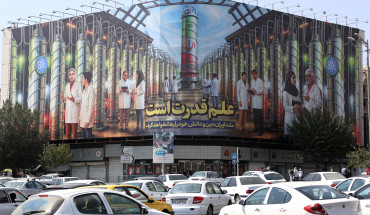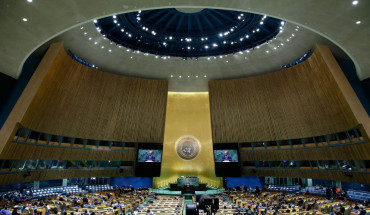Iran has welcomed President-elect Emmanuel Macron victory in the French election President Hassan Rouhani congratulated Macron on Monday and called for boosting bilateral ties between the two countries. Iran’s Foreign Ministry also congratulated the French government and people on Macron’s triumph over his populist rival Marine Le Pen. Several Iranian lawmakers also expressed the hope that the Macron government will cultivate closer ties with Tehran. Hossein Taghva-Hosseini, the spokesman of the National Security and Foreign Policy Committee of the parliament, also stressed that Tehran should exploit the widening gulf between the European Union and the United States to "work with Brussels to challenge Washington’s unilateralism."
The Iranian media was equally ecstatic. An editorial in Jahan-e Sanat wrote that Macron does not support the removal of the Syrian president and believes “any effort to topple Bashar al-Assad means that the West will itself empower Dash [Islamic State].” The article added that Macron would also prefer to play a neutral role in the Saudi-Iranian rivalry. But the editorial suggested that Macron’s election is good for Iran only if Rouhani wins a second term in May 19 elections. “In the present situation, Hassan Rouhan and Macron have both chosen the path of moderation and showed that moderation particularly in foreign policy can improve the two countries’ foreign relations.”
Comment: As the Iranian media commentary indicates, Tehran would like to drive a wedge between European countries and Washington in order to encourage investment from European countries. French energy companies and auto manufacturers were among the first to return to the Iranian markets after most nuclear-related sanctions on Iran were removed in January 2016. However, because of existing American and European non-nuclear sanctions on Iran – coupled with the Trump administration’s tougher approach toward the Islamic Republic – French banks have been reluctant to do business with Iran. With a new government in Paris, Tehran hopes that would change.
The Middle East Institute (MEI) is an independent, non-partisan, non-for-profit, educational organization. It does not engage in advocacy and its scholars’ opinions are their own. MEI welcomes financial donations, but retains sole editorial control over its work and its publications reflect only the authors’ views. For a listing of MEI donors, please click here.













